


























Adesuwa Belo-Osagie is the Co-founder of 7-Fifteen Capital, a real estate company born out of the deep conviction that Africa and Nigeria need more high-quality and value-driven real estate firms. Belo-Osagie and her partner saw a gap in the real estate sector where much capital was either too risk-averse or too disconnected from the lived realities on ground. Their goal was to bridge that divide by deploying smart, sustainable investments into real estate, focusing on identifying prime locations with the promise of value retention, value appreciation, functionality-led design, the use of high-quality materials, and a relentless drive not merely to promote luxury, but to deliver substance and value to their clients.
Read Adesuwa Belo-Osagie’s story about her love and passion for real estate on pages 8 through 10 of this issue.
Using quality hand cream can make all the difference when it comes to maintaining soft and smooth hands. The question is: how do you choose the best product for your hands, given the numerous options available on the market? We explain how to select the best hand cream for your skin on page 12.
These days, an increasing number of people are opting for a soft life. So, what is a soft life? We tell you about it and how you can live that life without breaking the bank. You’ll find this on page 11.
Our watch of the week is Squid Game Season 3. I know I’m late
the party, considering I haven’t seen Season 1 yet. I keep telling myself I’ll see
Maybe this weekend. Read our review of Season 3 on page 16.
Until next week, enjoy your read.












BY AMOS ESELE
The candidate of the New Nigeria Peoples Party, NNPP, in the 2023 presidential election, Dr Rabiu Kwankwaso’s political fortune is far from declining as current political calculations have singled out the North-West geopolitical zone as the most critical bloc towards winning the forthcoming 2027 General Election.
In their permutations, President Bola Tinubu’s men and the coalition of politicians have placed the North-West ahead of other geo-political zones in the country because of its voting strength, according to THEWILL checks. And the politician who both groups consider as holding the key to unlocking the zone’s magic formula for 2027 is Kwankwaso, the former governor of Kano and erstwhile Minister of the federal republic.
following in the state with the Kwankwasiyya Movement.
This was the main reason President Tinubu sacked the National Chairman of the APC, Dr. Abdullahi Ganduje last week. The latter was said to be standing in the way of a smooth discussion with his archrival in Kano, Kwankwaso.
According to reliable inter-party sources, both the coalition and Tinubu’s men are now wooing the politician. Initially, the latter were taking everything in their stride. But they decided to intensify their efforts to woo Kwankwaso when it dawned on them that some key coalition politicians were also making overtures to the Kano kingmaker known for enjoying a cult-
According to sources within the opposition coalition, which last Wednesday adopted the Africa Democratic Congress, ADC, as the party of choice in their bid to stop Tinubu’s re-election, there are ongoing moves to pave the way for Peter Obi’s emergence as presidential candidate of the coalition, barring any unforeseen circumstances. The move is in line with the unwritten power sharing understanding among the politicians to allow power to rotate between the North and South of the country.
This ongoing political plan is said to be behind Obi’s announcement of his intention to stay in






The unveiling of African Democratic Congress, ADC, by the coalition politicians has caused quite a storm in all the major political parties, contrary to the dismissive reactions from them, THEWILL has learnt. Part of the reason for this is the organic crowd that attended the display of the adopted party; politically exposed persons who attended freely, without mobilisation and payment for transportation.
Some of the attendees were, Atiku Abubakar, Obi, former Kaduna State governor, Nasir elRufai, former President of the Senate, David Mark, former Minister of Internal Affairs and exgovernor of Osun State, Ogbeni Rauf Aregbesola, former Minister of Transportation and exgovernor of Rivers State, Rotimi Ameachi, former National Chairman of the APC, Chief John Odigie –Oyegun, ex-National Chairman of the PDP, Uche Secondus; Chief Tom Ikimi, Senator Aminu Tambuwal, Senator Ireti Kingibe, Senator Eyinnanya Abaribe and Senator Elisha Abbo.
Others are former governors of Jigawa, Sule Lamido; Cross River, Liyel Imoke; Benue, Senator Gabriel Suswan; Imo, Emeka Ihedioha; Niger, Babangida Aliyu; and Ebonyi state, Sam Egwu. Kebbi and Sokoto State PDP Chairmen, Dr. Ibrahim Mera and Aliyu Goronyo respectively, Dr Ibrahim Mera as well as the party’s National Organising Secretary, Umar Bature were also there. The immediate past Attorney-General and Minister of Justice, Abubakar Malami, resigned from the APC last week and joined the ADC.
The list also included former Military Administrator of Kwara State Akwa Ibom State, retired Brig-General Tunde Ogbeha and Senator Victor Umeh of LP, Lauretta Onochie, former Board Chairman of the Niger Delta Development Commission, NNDC, Dino Melaye, Dele Momodu, publisher of Ovation magazine, Akeem Baba-Ahmed, former Minister of Sport, Solomon Dalung and former Minister of Youths Development Bolaji Abdullahi.
Checks further shows that one of the reasons Mark and former Minister of Interior and Ogbeni Aregbesola agreed to take up the respective positions of Interim National Chairman and National Secretary is to ensure the party was not hijacked by moneybags or ‘godfathers’. Sources say the duo want to avoid the mistakes and afflictions plaguing current political parties, which are battling with a crisis of leadership and control by the overly rich.
Within permissible time before the administrative and political demands impact on the party, the interim exco wants to restructure the party and embark on a fund raise, drive the process of membership registration, determine the dues for members ahead of its convention and rework the party’s constitution and manifesto.
As the Interim leadership has indicated, however,
the adopted ADC is still a work in progress. The fact that some of the big wigs in the coalition are yet to resign from their political parties means some of them still have their aces up their sleeves, which may make or mar the party in the days ahead.
states in the zone are Jigawa, Kebbi, Sokoto and Zamfara. During the 2023 election for example, the North-West had a total of 6,468, 492 votes, compared to the North-East with 3,116, 472: S/ South: 2,745,707. N/Central with 4,261,784; S/ West with 4,350,987; Southeast with 2,187,599.

Atiku Abubakar is still in the PDP. Obi is still in LP, though the Julius Abure faction gave him 48 hours to resign while it washed its hands off the coalition. But the Senator Nenadi Usman-led LP exco gave Obi the nod. Another prominent coalition leader, Nasir el-Rufai, is still with the Social Democratic Party, SDP, to which he defected from the APC in March this year.
Explaining the reason for this development, the spokesperson of ADC, Malam Bolaji Abdullahi said, “There are elections taking place before 2027 that these parties are engaged in, that people like Mallam Nasir El Rufai have his group engaged in. So, they have bought forms on the platform of those parties. So, it is only sensible that you allow them to contest the elections on the platforms of those parties. And when they are done with that, as was indicated yesterday, everybody in principle is in ADC.”
The North-West geopolitical zone gave President Tinubu the highest number of votes in the 2023 general election.
Tinubu got 30 per cent of the total number of 8,794,726 votes he scored in the 2023 election from the North-West. This is almost one-third of the total votes he scored in the entire poll. In comparison, the South-West, where he hails from, gave him 2,542,979
Apart from its exceptional advantage of having seven states among the six geo-political zones in the country, the zone also has three of the highest voting states in the country. They are namely Kaduna, Katsina and Kano. The other four
“ THEWILL gathered that former President Olusegun Obasanjo “who is well respected across the country for his patriotism,” is involved in selling the ObiKwankwaso ticket to the coalition as the best option for the ADC to make the ‘desired impact’, in the 2027 election
Of the figures from these seven states in the NorthEast, Kano alone controls almost two million votes alone with Kwankwaso raking in 997,297 votes and President Tinubu, 517,349 votes in the 2023 presidential election. Kwankwaso’s membership of the APC would therefore be a massive addition both in numbers and personality, given his cultfollowing.
Besides the threat posed by the coalition politicians to the President’s current standing in the zone, the waning influence of former President Muhammadu Buhari in the zone, owing to his indifferent posture, has created a big gap that Kwankwaso would fill with his cult followership.
KWANKWASO’S NNPP
The prospects of the NNPP as a solid platform for electoral contest is crumbling by the day as it has broken into factions after its founder Dr. Boniface Aniebonam clashed with Kwankwaso over change of the party’s logo and constitution, leading to a split. The party’s National Chairman, Dr Agbo Major last week reaffirmed his earlier submission that the former Kano governor remained expelled from the party, just as one of its senators from Kano, Abdulrahman Kawu, recently defected from the party alongside some other party representatives from Kano State.
According to Major, Kwankwaso cannot continue to insist that he is still a member of the party, even after his expulsion for alleged antiparty activities.
Speaking on the likely exit of the party’s former presidential candidate from the NNPP, Major said Kwankwaso’ s exit would be “good riddance” for the party, adding that he did not only try to hijack the NNPP, but also made the party go through avoidable litigations. The NNPP logo that he changed to the Kwankwasiya Movement logo has just been changed to our logo by INEC, after years of controversy and litigation.”
However, Buba Galadima, an ally of Kwankwaso on Friday said the party was still alive. On the current overtures by the APC and coalition politicians to Kwankwaso, Galadima confirmed that the “APC, the PDP and a political coalition have all made overtures to Kwankwaso in recent months,” but maintained that the NNPP factional leader is not succumbing to pressures.
“Every Nigerian needs him. Every political party needs him. Why not support him to become the president of Nigeria so that he can deliver the dividends of democracy?” Galadima asked rhetorically.


BY FELIX IFIJEH
Senate President, Godswill Akpabio, has expressed optimism that the ongoing review of the 1999 Constitution by the National Assembly will pave the way for a more just, united, and forward-looking federation.
Akpabio made this known on Friday while declaring open the South-South Zonal Public Hearing on the review of the 1999 Constitution, held in Ikot Ekpene, Akwa Ibom State. The exercise, which was part of a nationwide consultation, took place simultaneously in five geopolitical zones.
According to a statement by his Special Assistant on Media and Communication, Anietie Ekong, the Senate President described the hearing as a crucial democratic exercise. “Today’s event is not merely a formality. It is a democratic rite—a solemn moment in which the people, not politicians alone, speak into the soul of the nation. It is an affirmation that in a democracy, every voice counts,” Akpabio said.
He noted that the Constitution, like democracy itself, is a work in progress. “No constitution is eternal in its original form, and no democracy is perfect, because man himself is not perfect. But it is in our collective pursuit of a more
perfect union that the true beauty of democracy lies,” he added.
Akpabio said the review is not a repudiation of the past but a recommitment to the future. “We amend not to abandon, but to realign—to adapt our national charter to the changing realities, dreams, and demands of the good people of Nigeria.”
He stressed that the Senate views every Nigerian as a stakeholder in the democratic process, and the public hearing reflects the chamber’s commitment to open dialogue and inclusive governance. “We are here—not as party men, but as patriots. Not as political actors, but as nation-builders,” he said.
On his part, Akwa Ibom State Governor, Pastor Umo Eno, described the review process as a significant opportunity to restructure the nation for greater equity and efficiency.
Represented by the Deputy Governor, Senator Akon Eyakenyi, the governor said: “The scores of constitution alteration bills across thirteen thematic areas— painstakingly curated by the Senate Committee—speak to some of the most urgent and persistent questions about the
The Nigerian Guild of Editors (NGE) has suspended one of its members, Mr. Steve Osuji, for violating the “off the record” provision in the Code of Ethics for journalists in Nigeria.
professional misconduct seriously and has announced the suspension of Mr. Osuji from our professional body for one year, effective immediately.
The NGE apologized to the Director-General of the SSS and the institution he represents for the embarrassment caused by Mr. Osuji’s actions, while reaffirming its “commitment to upholding the highest standards of journalism and ensuring that our members adhere to our code of ethics.”

In a press statement on Thursday by Mr. Eze Anaba (President) and Mr. Onuoha Ukeh (General Secretary), the Guild stated that there was an agreement that the keynote address delivered by the Director-General of the State Security Service (SSS), Mr. Adeola Oluwatosin Ajayi, at its 25th Biennial National Convention in Enugu, was off-the-record and not for publication.
The Guild said that despite announcement of this agreement, “a senior journalist and member of the Guild, Mr. Steve Osuji, published an article based on the presentation on his social media platforms, breaching our Code of Ethics on confidentiality.”
The professional body said that it “takes this
The NGE said that “Mr. Osuji will have the opportunity to appeal this decision. “The Guild also restated its dedication “to promoting professional conduct and maintaining public trust in the media.”
Contacted for his reaction, Mr. Osuji told THEWILL that he was unaware that editors agreed to treat the statement of the DSS DG as off-record and not see anything wrong with the published article that




BY FELIX IFIJEH
The Federal High Court in Abuja has affirmed the exclusive statutory authority of the Nigeria InterBank Settlement System Plc (NIBSS) to maintain and manage the Bank Verification Number (BVN) database in Nigeria, in accordance with the provisions of the Central Bank of Nigeria (CBN) Act, 2007, and the Banks and Other Financial Institutions Act (BOFIA), 2020.
Justice James Omotosho delivered the judgment on Friday in a suit filed by NIBSS against the Incorporated Trustees of Digital Rights Lawyers Initiative and others.
The Digital Rights Lawyers Initiative had challenged the legal authority of NIBSS to manage the BVN database, claiming it violated the constitutional right to privacy of Nigerian citizens.
In its suit filed through lead counsel, Wolemi Esan, NIBSS argued that it is statutorily responsible for initiating, developing, and regulating an integrated, nationwide system for electronic and paperless payments, funds transfer, and the settlement of transactions under the CBN Act and BOFIA.

The company sought the court’s declaration affirming its authority to manage the BVN database and a perpetual injunction restraining any entity or individual from contesting this mandate.
Specifically, NIBSS sought: “A declaration that the plaintiff’s maintenance and management of the Bank Verification Number (BVN) data of Nigerians does not violate their constitutional right to privacy or any extant laws in force in Nigeria.
“An order of perpetual injunction restraining the 1st Defendant (Digital Rights Lawyers Initiative), and any other entity, person, or institution whether directly or through agents, officers, employees, privies, or any person acting under their instruction or control from contesting the plaintiff’s statutory authority to maintain and manage the BVN database.”
The CBN and the Attorney-General of the Federation were joined as second and third defendants, respectively.
In its defence, the CBN urged the court to uphold that

NIBSS’s management of the BVN database is not only statutorily mandated but also constitutionally valid and critical for the stability of the nation’s financial system.
The apex bank argued that under Section 47(2) of the CBN Act, it is empowered to develop and regulate Nigeria’s payment and settlement systems, and that the BVN initiative is a vital tool for promoting financial security and protecting public interest.
Delivering judgment, Justice Omotosho held that the management of BVN data by NIBSS does not violate any individual’s constitutional right to privacy.
He ruled that the CBN’s powers to regulate the financial sector are clearly established in both the CBN Act and BOFIA 2020 and affirmed that NIBSS is legally empowered to maintain and manage the BVN database.
Consequently, the court issued a perpetual injunction restraining the Digital Rights Lawyers Initiative and any other persons or institutions from challenging the authority of NIBSS in this regard.
I
ndustry leaders have defended Nigeria’s local content policy, rejecting claims that it inflates business costs in the oil and gas sector.
The Leaders, who gathered at the NOG Energy Week in Abuja, cautioned that such criticisms jeopardise the nation’s industrial progress and lauded the Nigerian Content Development and Monitoring Board (NCDMB) for its pivotal role in building indigenous capacity and fostering innovation.
During a panel session titled “Technology as a Business Strategy”, panellists championed NCDMB’s contributions, emphasising its success in driving local expertise and technological advancement.
Dr Daere Akobo, Group Chief Executive Officer of Pana Holdings, dismissed critiques of local content, arguing that its benefits to Nigeria’s economy far outweigh any perceived cost increases.
“Claims that local content drives up costs are misguided. How can you prioritise cost over GDP growth? Where will our youth find jobs? Undermining local content for short-term gains is a mistake. Nigeria must stay the course”, he said.
Akobo highlighted his company’s work on Africa’s first digital refinery, a pioneering project showcasing the synergy between technology and local content. He
identified fragmented data in Nigeria’s oil and gas sector as a key barrier to cost efficiency..
Mr George Onafowokan, the Managing Director of Coleman Cables and Wires, praised NCDMB’s datadriven approach, crediting it for significant strides in local content development.
The panellists unanimously agreed that integrating technology, consolidating data, and strengthening institutions like NCDMB are critical to building a resilient and competitive oil and gas sector. They urged policymakers, operators, and international stakeholders to reject narratives blaming local content for rising costs, advocating instead for robust frameworks and investments to drive inclusive growth and long-term industry stability.
Similarly, representatives from Ghana and other African nations have underscored the growing influence of Nigeria’s local content framework and urged stronger cross-border policy alignment. They spoke at the justconcluded NOG Energy Week in Abuja,
Dr Ernest Nwapa, NCDMB’s pioneer Executive Secretary, highlighted the Nigerian oil and gas sector’s resurgence, driven by increased production, deregulation, and improved governance. He emphasised the need for long-term sustainability to sustain this
momentum.
Ghana’s Deputy Chief Executive of the Petroleum Commission, Nasir Alfa Mohamed, noted that African nations have long looked to Nigeria for energy sector leadership. He called for dismantling barriers to regional integration and advocated for standardised regulations.
Engr. Farouk Ahmed, Authority Chief Executive of the Nigerian Midstream and Downstream Petroleum Regulatory Authority (NMDPRA), represented by Prof. Zainab Gobir, stressed the importance of joint infrastructure, uniform tariffs, and coordinated regulations for true economic integration.
He cited the Petroleum Industry Act (PIA) as a model, particularly its Midstream and Downstream Gas Infrastructure Fund, designed to de-risk investments in gas and infrastructure projects. Ahmed also highlighted NMDPRA’s efforts to streamline operations through a one-stop shop and ongoing stakeholder engagement.
Engr. Gbenga Komolafe, the Chief Executive of the Nigerian Upstream Petroleum Regulatory Commission (NUPRC), reaffirmed Nigeria’s strategic role in regional energy cooperation, noting that the country accounts for nearly 30% of Africa’s oil reserves and 33% of its gas.
Managing Director, News Agency of Nigeria (NAN), Ali Muhammad Ali (5th r); Head of Corporate, Galaxy Backbone Limited (GBB), Chidi Okpala (6th r); Team Lead, Media GBB, Fatima Baba (4th r); Head Customer Support Services, Rosemary Ehieze (4th l); Director, Administration and Human Resources, NAN, Mr Khaliel Abdulhadi (2nd r); Editor-in-Chief, Mr Mufutau Ojo; other management staff and GBB delegation, during their visit to NAN headquarters in Abuja on July 3, 2025.

BY FELIX IFIJEH
The Federal High Court, Abuja, has ordered the Nigerian Senate to recall the suspended lawmaker representing Kogi Central, Natasha Akpoti-Uduaghan, from suspension.
Justice Binta Nyako ordered Natasha’s recall from the sixmonth suspension while ruling on Friday, in a suit challenging the Senate’s action.
THEWILL had reported that Natasha had been suspended for six months for misconduct and violation of Senate rules.

Her suspension includes the withdrawal of her salary, security details, barred access to the National Assembly premises and identifying herself as a senator.
Ruling on Friday, Justice Nyako declared the six-month suspension “excessive” and declared the provision of Chapter 8 of the Senate Standing Rules as well as section 14 of the Legislative Houses, Powers & Privileges Act, as overreaching.
Noting that the two legislations failed to specify the maximum period that a serving lawmaker could be suspended from office,
and that lawmakers have 181 days to sit in every legislative circle, Justice Nyako held that the six months suspension slammed on Natasha was akin to pushing her away from her responsibilities to her constituents for about 180 days.
While emphasising the power of the Senate to punish any of its members, the court declared that such punishment must not be excessive to deprive the constituents of their right to be represented. Consequently, the court dismissed Akpabio’s contention that it lacked the jurisdiction to entertain the suit.
Troops of Operation HADIN KAI, in collaboration with the Civilian Joint Task Force (CJTF), have foiled a major terrorist attack after uncovering 56 improvised explosive devices (IEDs) planted by Boko Haram/ISWAP insurgents on a key bridge linking Marte and Dikwa in Borno State.
The Nigerian Army, in a statement on Thursday, said the discovery was made during a targeted clearance operation by Explosive Ordnance Disposal (EOD) teams deployed from the Marte and Dikwa Forward Operating Bases.
“A total of 56 fully prepared IEDs have so far been safely recovered from the location. Controlled procedures are currently ongoing to render the remaining devices safe for full recovery and disposal,” the statement read.
The bridge serves as a critical transit route for civilians, humanitarian workers, and military logistics in the conflictridden region, making it a frequent target for terrorist sabotage.
Military authorities urged residents in the area to remain vigilant and report suspicious movements, while reaffirming their commitment to restoring peace and stability in the North-East.
The military described the discovery as a significant breakthrough in its counter-terrorism operations, noting that the foiled attack could have resulted in massive casualties and infrastructure damage. “This successful operation has prevented a potentially catastrophic attack and reaffirms the vigilance, expertise, and commitment of Nigerian troops in safeguarding key infrastructure and civilian lives within the North East theatre,” the statement added.
BY AMOS OKIOMA
The Bayelsa State High Court Judge, Rt. Hon. Justice E.G. Umokoro has regained freedom after 12 days in captivity. He was released from the kidnappers’ den without payment of ransom.
The kidnappers had last Saturday demanded a sum equivalent to N300 million naira in foreign currency for his release. The release of the judge followed days of joint police tactical operations, led by the Commander of the Operation Puff Adder, CSP Chris Nwaogbo.
THEWILL also gathered that a few of the suspected kidnappers involved in the abduction were identified and traced to the Ekeremor area of the State, where the abducted Judge is from.
Some of his relations, according to security sources, reached out to the families of his abductors and threatened fire and brimstone if he is not released with immediate effect.
The State Director of the DSS, Oluwatosin Adeola Ajayi, and the State Commissioner of Police, Francis Idu, announced on Thursday night that the abducted Judge was released without
ransom and rescued unhurt. The released State High Court Judge, who looked tired, expressed appreciation to everyone who participated in his rescue efforts, describing the last 12 days as “confusing”.
He said he was becoming confused in the kidnappers’ den “I was confused in the kidnappers’ den. I was beginning to get confused. I still could not come to terms with the fact that I was kidnapped and kept in the forest and exposed to the cold. I thank God I was rescued alive.
“I can’t thank God enough. It will always be an unforgettable experience for me. I thank God I came out unshattered “The kidnappers told me I should have fallen critically ill. I was exposed to the cold. I prayed to God that if I came out, I would testify to his goodness.”
Speaking at the State headquarters of the DSS, the President of the Customary Court of Appeal, Hon. Justice Daniel Ayah, said the rescue of Rt. Hon. Justice Umukoro is a collective effort of the security agencies, the Judiciary and the State Government.
Justice Ayah pointed out that the Chief Judge of the State was disturbed by the 12-day kidnapping drama of Justice Umukoro. He confirmed that the three major suspects were arrested in connection with the judge’s abduction and that the police have identified three key suspects who are still at large.
The Commissioner of Police, Francis Idu, said the joint efforts of the security agencies are bound together towards the rescue of the abducted judge.
The State Chairman of the Nigerian Bar Association, Barr. Clement Kekemeke, commended the men of the judiciary and the bar for their calmness and composure during the 12-day abduction of the judge, “We embarked on a court boycott and down tools. Everyone played their roles, and it tells us that in times of trouble, we should be united.”
A source within the State Police Command also disclosed that four key suspects have been identified over their alleged involvement in the kidnapping of Rt. Hon. Justice Umukoro.



BY FELIX IFIJEH
Federal Capital Territory (FCT) Minister, Nyesom Wike, has responded to public criticism over his recent purchase of a Rolls-Royce, stating emphatically that he bought the luxury vehicle with his own money and owes no one an explanation. Wike’s remarks come amid public scrutiny over his perceived flamboyant lifestyle while holding public office.
Speaking on Politics Today, a Channels Television Programme, the former Rivers governor dismissed the criticism as “noise from idle people”, adding that he is not a poor man and never pretended to be one: He said, “Yes, I bought a Rolls-Royce. So what? Did anyone give me the money? It is my money. Let me be clear, I am not a poor man. I have served this country and my state. I deserve to enjoy my life. This hypocrisy must stop.” Wike, known for his fiery rhetoric and unapologetic style, has long maintained that he lives within his means and has always declared his assets. He also used the occasion to challenge anyone with evidence of corruption against him to “go to the EFCC or court.”
Maintaining the long-running rivalry between him and former Governor Rotimi Amaechi, Wike said the former Transportation Minister lacks the integrity and honour deserving of respect and has no moral ground to claim seniority over him in politics. “He (Amaechi) cannot claim to be my senior politically. I contested the chairmanship of one of the most important local governments in this country – Obio-Akpor – in 1998, and I won”, he said.

Dismissing the notion that Amaechi was in any way
responsible for his political rise, Wike said, “First of all, respect should not come because you’re older or because you were once governor. Respect should come from integrity and honour. You shouldn’t be respected just because you are 200 years old.” Referring to Amaechi’s political journey, Wike said the former governor had suffered a series of failures early in his career and that he had personally played a key role in assisting him to gain a foothold in Rivers State politics.
“When he was struggling, I was already building a structure. He wanted someone to help him be appointed a lawyer to the Rivers State government. I walked him through. He wrote to the then Director of Civil Litigation. The man was loyal to me”, Wike stated. Wike went on to challenge Amaechi’s record, noting that he had failed to win his National Assembly bid in 1999 and had only managed to rise through the influence of others.
“He failed the national election. He failed the State Assembly primaries. The so-called human rights man – I can’t even remember what he was fighting for then”, he added, while describing his academic qualifications as less than average.
The FCT Minister also criticised what he called Amaechi’s constant attempt to remind people of his past achievements as though they guaranteed current relevance.
“God gives power to whomever He chooses at the right time. What matters is how you use that power to uplift others, not how many years you’ve been around. He does not even know his left from his right politically. So, how can he claim he made me? It’s unfair”, he said.
Wike also urged President Bola Tinubu to release the report of the forensic audit on the Niger Delta Development Commission NDDC, which he said indicted Amaechi. He vowed to resign if the report is released and its contents do not indict Amaechi. Wike further alleged that Amaechi’s wife received N4 billion monthly from the NDDC to train Niger Delta women.
“First of all, Amaechi’s wife was not an industrialist. She has never been, and that is why I call on Mr President to release the forensic audit of NDDC.
“Amaechi’s wife’s company, every month, got N4 billion to train Niger Delta women. That is N48 billion in one year alone, and the forensic audit report is there. Who killed it? It was Malami, then the Attorney General. That is one of the people who is now talking. Mr President should help Nigerians. You see, this is what I have always said. Mr President should help Nigerians. Please, release the forensic audit of the NDDC.
“I have said, let Mr President please do us a favour to release that document. Former Attorney General, Malami, killed that document to protect those who were concerned. I am not just saying what I am saying; let them release the document. If what I am saying is not in the document, I will resign as the Minister of the FCT. I said I will resign. I don’t worship the office. What I am saying is, let them release the forensic audit of the NDDC. I didn’t say the forensic audit was right, but I said, Release the report of the forensic audit. “ That is how the wife became an industrialist – N4 billion every month to train Niger Delta women”, he stated.
President Bola Tinubu has arrived in Rio de Janeiro, Brazil, to participate in the 17th Summit of Heads of State and Government for the Global South and Emerging Economic Bloc. The block includes Brazil, Russia, India, China, and South Africa, also called the BRICS.
The President’s flight touched down at the Galeao Air Force Base tarmac at 8:45 pm local time on Friday, where the Galeao Air Force Base Commander coordinated the Guard of Honour. Tinubu’s Special Adviser on Information and Strategy, Bayo Onanuga, stated this in a statement on Saturday titled ‘President Tinubu Arrives In Rio De Janeiro For BRICS Meeting’.
Brazil’s Deputy Minister for Africa and the Middle East, Carlos Sergio Sobral Duarte, and the Deputy Minister for
Trade Promotion, Science, Technology, Innovation, and Culture, received President Tinubu.
Tinubu is in Brazil at the invitation of President Luiz Inacio Lula Da Silva. The Nigerian leader will attend a bilateral meeting hosted by President Lula on Saturday, July 5, ahead of the summit on June 6 and 7.
At the BRICS Summit, the President will participate in a plenary session and deliver an address on Nigeria’s ongoing reforms to reposition the economy for global competitiveness.
He will also meet with investors to capitalise on the country’s opportunities in Agriculture, Solid Minerals, Healthcare, and alternative Energy. The summit’s theme is “Strengthening Global South Cooperation for More

Inclusive and Sustainable Governance.” Deliberations will centre on health, Artificial Intelligence, governance, and Climate Change issues.
Ahead of the Leaders’ Summit, the political negotiators of BRICS brainstormed over aligning more commitments to combat socially determined diseases, artificial intelligence governance, and climate finance.
Their focus was on providing concrete solutions to the structural challenges faced by the Global South.
Our correspondent reports that State Governors participating in the summit with the President are Hyacinth Alia (Benue), Prince Dapo Abiodun (Ogun), Babajide Sanwo-Olu (Lagos), Sheriff Oborevwori (Delta) and Mohammed Umar Bago (Niger).

BY FELIX IFIJEH
With the adoption of the African Democratic Congress, ADC, as a party by the opposition coalition politicians against President Bola Tinubu’s reelection, a three-party horse race may have unfolded ahead of the 2027 General Election and the fear of a one-party state put to rest.
Although still largely a coalition as major promoters of the coalition like former Vice President and candidate of the Peoples Democratic Party, PDP, in the 2023 polls, Atiku Abubakar and his Labour Party, LP, counterpart, Peter Obi, are yet to formally resign from their respective parties, the resignation of former President of the Senate, David Mark from the PDP to take up the position of the interim National Chairman, including the big wigs that attended the unveiling of the party of choice has shown clearly that the ADC will stand shoulder to shoulder with the PDP and the governing All Progressives Congress, APC, as three major parties in the polity.
Obi’s formal exit from LP will significantly impact on the relevance of that crisis-ridden party in the future.
Hitherto, the fear of a one-party state with the other opposition PDP and LP searing from a self-inflicted leadership crisis, which they in turn blamed on government machinations, was real among politicians, particularly in the face of serial defections of governors, National Assembly members and local government chairmen to the APC ahead of the upcoming general election that is two and a half years away.
The Presidency has stated that the newly formed opposition coalition is a fragile alliance held together only by a common resentment for President Bola Tinubu, rather than shared vision or ideology.
THEWILL reports that the National Coalition of Political Opposition Movement in Nigeria, on Wednesday, unveiled the African Democratic Congress (ADC) as a platform to challenge President Bola Tinubu in the 2027 general election. The ADC event attracted politicians from major political parties, including the LP, the PDP, the APC and the Social Democratic Party, SDP.
They include Abubakar, Obi, Nasir el-Rufai, former Minister of Interior and erstwhile governor of Osun State, Rauf Aregbesola, who is the party’s interim National Secretary, PDP Senator Aminu Tambuwal, former governor of Sokoto State, Akeem Baba-Ahmed, Rotimi Amaechi, former minister of transportation, Solomon Dalung, ex-minister of sports and Odigie Oyegun, former National Chairman of the APC.
Others were Abubakar Malami, former Attorney-general of the federation and Minister of justice, Dino Melaye, Dele Momodu, publisher of Ovation magazine, Senator Eyinnanya Abaribe, Senator Gabriel Suswan, Senator Ireti Kingibe, Senator Elisha Abbo, Uche Secondus, former PDP National Chairman. The list also included former Military Administrator of Akwa Ibom State? Tunde Ogbeha and Senator Victor Umeh, Lauretta Onochie, former Board Chairman of the Niger Delta Development Commission, NNDC, Liyel Imoke, former governor of Cross River State and former Minister of Youths Development Bolaji Abdullahi, who now acts as the National Publicity Secretary. Other PDP chieftains in attendance were the party’s National Organising Secretary, Umar Bature, and the Sokoto State chairman, Aliyu Goronyo and his Kebbi State counterpart, Dr Ibrahim Mera, who noted that only a united political front could rescue Nigeria from the misgovernance of the APC.
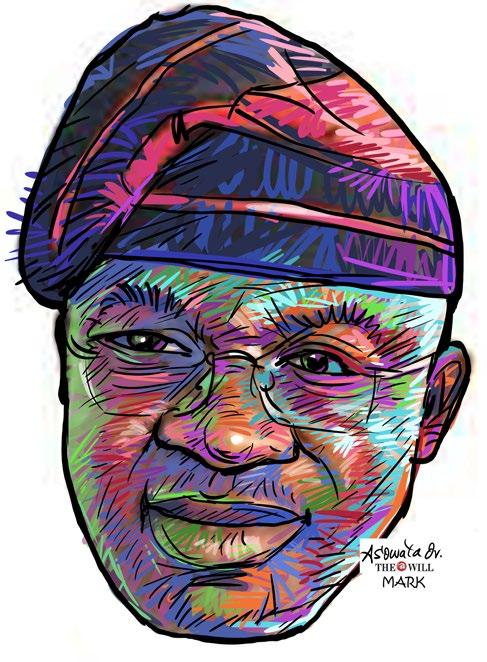
The instant reaction from rivals was one of panic, then unsolicited advice on choice of candidates and finally, utter dismissal.
Reacting to the development in a statement on Thursday, Bayo Onanuga, the Special Adviser to the President on Information and Strategy, disclosed that many of the coalition members have long distanced themselves from the ruling APC and are merely using the African Democratic Congress (ADC) as a platform to regain political relevance.
Onanuga warned that the coalition’s lack of a unifying ideology or agenda will make it unsustainable, arguing that its members are motivated not by the national interest but by a desperation to escape political obscurity.
On his part, Sunday Dare, the Special Adviser to the President on Media and Public Communications, compared the new coalition (ADC) to the 2013 political alliance that birthed the APC.
Titled “This Is Not 2013: Why the ADC Coalition Can’t Mirror the APC”, Dare said the merger that birthed the APC in 2013 was driven by selflessness, national interest, and strategic discipline.
According to Dare, “The leaders at the time were willing to set aside personal ambitions for the greater good. Asiwaju Bola Ahmed Tinubu, despite commanding the loyalty of several sitting governors, chose to wait. He bided his time, played the long game, and focused on building a viable political platform. He had never lost an election, and he didn’t have to force his way in.”
On its part, the Julius Abure led-faction of the LP issued a 48-hour ultimatum to Obi to resign his membership of the party for allegedly joining the new coalition party. The former Anambra governor acknowledged that the decision to adopt the ADC as the platform for the 2027 general elections was a difficult but necessary step for Nigeria’s political future.
Obiora Ifoh, National Publicity Secretary of the LP faction, described the coalition members as power mongers, whose only interest is self and not the people. The FCT Minister, Nyesom Wike, did not spare kind words for the coalition. During his monthly media parley in Abuja, on Thursday. Wike faulted the rhetoric that Nigerians were angry, noting that the members of the coalition were previously in government and did nothing to address or alleviate Nigerians’ situation.
“I cannot say that there are no challenges. There are challenges. But for Christ’s sake, stop using Nigerians,” he stated. The Minister also noted that only the PDP could challenge President Tinubu in 2027, if they got their acts together. Among the notable members of the coalition, Obi has given reasons for joining the ADC, Obi said the decision was not made lightly.
“It comes from deep reflection on where we are as a country and what must be done to move forward. Our commitment is to sacrifice and work together towards the 2027 general elections, ensuring that Nigeria gets a competent, capable, and compassionate leadership that will prioritise the nation’s future by putting the welfare of Nigerians first,” he said. Obi has proposed to serve a single term in office if given the mandate.
Bolaji Abdullahi, interim spokesperson of the ADC, threw more light on the mission of the adopted party. Arguing that the party is not just an anti-President Bola Tinubu coalition, Abdullahi said the coalition under the ADC is out to prevent a situation where Nigerians have no alternative in 2027.
“It has been described as an anti-Tinubu coalition, but it goes much more beyond that. It’s not just about the President, but more about saving democracy. We have watched in the last couple of months how all opposition parties have been decimated, either willingly or not, through internal sabotage or through external forces,” he said.
On Wike’s attack on the coalition leaders, Abdullahi said, “Minister Wike claimed in his media chat that the coalition leaders are driven only by grievances. If we have any grievances, it is the way the government he is a part, has driven the majority of Nigerians into poverty and misery.
“We are aggrieved to see children of the poor unable to get an education because he would not pay their teachers’ salaries. We are aggrieved to watch the growing insecurity in the FCT that he superintends. We are aggrieved that Minister Wike has allowed himself to be used by the government he serves to destroy one of the most powerful political parties in Africa, the PDP.”
“
It has been described as an anti-Tinubu coalition, but it goes much more beyond that. It’s not just about the President, but more about saving democracy. We have watched in the last couple of months how all opposition parties have been decimated, either willingly or not, through internal sabotage or through external forces










































Center Spread Half Page N1, 300, 000
Double Spread N1, 550, 000

Double Spread Half Page N1, 200, 000
10X6 N700, 000
10X5 N650, 000
10X4 N600, 000
10X3 N500, 000
9X6 N440, 000
9X5 N395, 000
9X4 N335, 000
9X3 N310, 000

8X6 N410, 000

8X5 N380, 000
7X5 N320, 000




7X4 N315, 000
6X5 N280, 000

6X3 N145, 000
6X2 N85, 000
5X2 N70, 000
4X4 N160, 000
4X3 N95, 000
4X2 N65, 000
3X3 N60, 000
3X2 N50, 000
2X2 N30, 000
2X1 N15, 000
1X1 N7, 000



























OLike the interim secretary of an association whose name had to be substituted because he had defected to a new party, many others duplicating names are ignorant of the relevant laws governing registration of political parties and we think the Commission should spare Nigerians the agony by weeding them out
n Thursday, the Independent National Electoral Commission, INEC, gave an update on the number of associations seeking registration as political parties with it. It said the number had increased from the earlier figure of 110 to 122. That was within a week. At this rate, that is before the end of the legal window of 30 months expiration date for application and registration before an election, the number might increase.
While the Commission disclosed that the list of the new applications by names of associations, their acronyms, addresses, and interim chairmen and secretaries has been uploaded to its website and other platforms for public information, it added that response to the applicants will be in line with the Electoral Act and Regulations and Guidelines for Political Parties 2022.
Interestingly, INEC noted that one association has already changed its interim secretary as a result of defection to another association. This attitude is typical of many Nigerian politicians: Always in a hurry to jump ship at the slightest change, all in search of where the grass is greening, never on the basis of principle or vision.
We however wish to draw the Commission’s attention to the need to be as practical and legal in the execution of its mandate on registration of political parties. This is like history repeating itself.
As of February 2019, Nigeria had 90 political parties, many with no known office address, web site and administrative office until the Commission wielded the big stick in 2022 and pruned the number down to 18 . Even so, the parties are just numbers during every election, general or off-cycle.
In fact, if the Commission had been diligent in its assignment with regard to monitoring of administrative, election and financial standing of political parties, the country would have been
left with probably five political parties.
According to Section 225A of the Constitution (with the First, Second, Third and Fourth Alterations as amended in 2017), INECis empowered to deregister political parties for various reasons.
Section 225A states, “The Independent National Electoral Commission shall have power to deregister a political party for breach of any of the requirements for registration;
“Failure to win at least 25 percent of votes cast in one state of the Federation in a Presidential election or one Local Government of the State in a Governorship election;
“Failure to win at least one ward in the Chairmanship election, one seat in the National or State House of Assembly election or one seat in the Councillorship election.”
Similarly, Section 222 of the Constitution states that political parties that fail serially to render accounts of their detailed annual statement and analysis of their sources of funds and other assets with similar statements of expenditure, may also be deregistered.
If these constitutional provisions are applied, political parties may not be more than seven in Nigeria, namely, the governing All Progressives Congress, APC, the Peoples Democratic Party, PDP, Labour Party, LP, the All Progressives Grand Alliance, APGA and the Young Progressives Party, YPP, the New Nigeria Peoples Party and the Social Democratic Party, SDP.
What we have seen with the other fringe parties, truth be told, is that they are usually for sale to the highest bidder during elections. Many of the money bags who pay to use these parties to pursue their inordinate ambitions have nothing substantial to offer by way of vision, manifesto and followership. Apart from stretching the logistics and manpower of INEC during elections, they also give a false
impression that democracy is being served by their inclusion, when in fact they have neither followership nor presence in the public space to speak of.
If these rules had been applied, we would not be faced with this present glut that is threatening to stretch the Commission to distraction. Even the major parties would begin to shape up and conform to their designation as political parties in the true sense of the word, devoid of the current crisis of leadership plaguing virtually all of them.
Indeed, many of the names on the list published by the Commission look like duplicates. Our preliminary investigation shows that some of these associations were duplicated in the belief that “one of them must be registered,” according to a leader of one of the associations which bear similar but twisted names to achieve the same purpose.
Like the interim secretary of an association whose name had to be substituted because he had defected to a new party, many others duplicating names are ignorant of the relevant laws governing registration of political parties and we think the Commission should spare Nigerians the agony by weeding them out.
This is exactly what a section on the INEC’s Registration and Deregistration of Political Parties speaks to when its states that “Where at any stage of the registration process it is discovered that the same set of persons submitted more than one application, or that any aspect of the submission is false, such an application shall be invalidated.”
The point in all of this is that INEC should begin to apply the rule with no reasons whatsoever for waiver. After 26 years of unbroken democratic practice, Nigeria should have political parties that are true to their names as agents of political mobilisation and socialisation.





BY PROF CHIWUIKE UBA
For decades, Nigeria’s tax system has symbolised everything wrong with the country’s broader fiscal culture—narrow tax bases, overburdened workers, under-taxed elites, a thriving informal sector, and rampant corruption. With a tax-to-GDP ratio that has hovered between 6 percent and 8 percent, Nigeria remains one of the poorest tax performers in Africa. This has forced the country into the clutches of debt, aid dependence and volatile oil markets.
In this context, the signing into law of four pivotal instruments in 2025—the Nigeria Tax Act, the Nigeria Tax Administration Act, the Nigeria Revenue Service (Establishment) Act, and the Joint Revenue Board (Establishment) Act—is a watershed moment. These laws are not merely administrative documents; they aim to redefine the very philosophy of taxation in Nigeria. But can they succeed where past reforms have failed?
One of the most commendable features of the new tax framework is its clear move towards progressivity. For the first time in the country’s history, individuals earning N800,000 or less annually are exempt from personal income tax under Section 58 of the Nigeria Tax Act, 2025. This is a bold and compassionate gesture in a country where millions survive on less than a dollar a day. Small and medium enterprises with turnover not exceeding N100 million benefit from simplified compliance procedures and businesses earning below N25 million now face a 0 percent Company Income Tax as provided in Section 56. These measures, if implemented with diligence and integrity, could significantly ease the fiscal burden on low-income earners and help formalise Nigeria’s largely informal economy.
Digitisation has also moved from vision to law. The mandatory use of Tax Identification Numbers by individuals, companies and all government entities—outlined in Sections 4 to 8 of the Tax Administration Act—is to be reinforced through integration with existing national identity databases, such as the NIN and BVN.
Taxpayer data will be interlinked, returns can be filed electronically and VAT can be tracked in real time through fiscalisation systems under Section 23. What were once futuristic buzzwords—AI audits, e-invoicing, API-based validation—are now legal obligations. If enforced faithfully, these digital provisions could dramatically improve traceability, efficiency and curb fraud across the system.
Another major pillar of the reforms is harmonisation. The Joint Revenue Board, established under the JRBE Act, is now empowered to align the operational frameworks of federal, state and local tax bodies.
In a move that could reduce the long-standing challenge of multiple

taxation, states may now authorise the Nigeria Revenue Service to collect certain taxes on their behalf, as allowed under Section 5 of the NIRS Act.
The establishment of the Office of the Tax Ombud, as laid out in Section 141 of the Tax Administration Act, provides taxpayers with a much-needed platform for redress and the protection of their rights—an essential step in rebuilding trust between the government and its citizens.
The new tax laws also target wealth more assertively. Capital Gains Tax, which had long been neglected, now covers disposals of land, shares, digital assets, and intellectual property. Exemptions apply for gains below N10 million, charitable donations, and reinvestments. Withholding Tax is also reinforced, applying to payments for consultancy, rent, royalties, dividends, and digital services, with penalties including a 10% surcharge and joint liability for non-compliance. These measures represent significant efforts to increase fairness and close long-standing loopholes.
Sections 190 to 195 of the Nigeria Tax Act directly address tax avoidance by multinational corporations. The reforms strengthen transfer pricing rules, mandate arm’s-length pricing in related-party transactions, and allow for audits of offshore arrangements. These tools are essential to curbing base erosion and profit shifting, aligning Nigeria with the OECD’s BEPS action plan.
THE 2025 TAX REFORM LAWS REPRESENT NOT JUST NEW RULES, BUT A NEW OPPORTUNITY. AN OPPORTUNITY TO MAKE TAXATION AN INSTRUMENT OF JUSTICE AND DEVELOPMENT. AN OPPORTUNITY TO WEAN NIGERIA OFF ITS CHRONIC DEPENDENCE ON OIL. AN OPPORTUNITY TO RESTORE THE DIGNITY OF THE TAXPAYER
Still, despite their promise, the laws are not without their flaws. While thresholds for exemptions are clearly defined, there is no comprehensive rate schedule or taxpayer handbook. For small businesses and informal traders, the lack of userfriendly guidance could render the legal landscape inaccessible.
The laws are also silent on gender. They fail to address the specific challenges of women-led businesses, particularly in the informal sector, and contain no tax credits, waivers, or capacity-building support targeted at this group.
Pro-poor taxation must extend beyond exemptions— it must be paired with deliberate social protection efforts. Linking tax IDs with the National Social Register, conditional cash transfer programmes,
BY DUPE OLUSOLA
Iwant to be a doctor so I can fix people. But my uncle says girls in our house don’t go to school for long. They get married.” These words from 9-year-old Hauwa, spoken to me during a recent visit to an elementary school in Kano, have stayed with me like an echo in my soul. Bright-eyed, eager, and full of dreams, Hauwa represents the many children across Nigeria and Africa, whose aspirations are stifled long before they can take flight.
Kano is a city known for its vibrant culture and resilience. But it is also emblematic of the deeply rooted challenges that keep too many children, especially girls, trapped in cycles of poverty, inequality, and lost potential. The stark contrast between Hauwa’s dreams and her community’s reality underscores the urgency of our mission at Save the Children.
The Silent Emergency: Out-of-School Children
According to UNESCO, over 98 million children are out of school across Africa. Nigeria alone accounts for close to 20 million of these children, the highest number globally. Many of them are girls, like Hauwa, facing early marriage, poverty, insecurity, or societal norms that deny them access to education.
This is not just an education crisis. It is a social and economic emergency. Without access to learning, children are more vulnerable to exploitation, malnutrition, health crises, and generational poverty. According to UNICEF, one in eight children in Nigeria dies before their fifth birthday from preventable causes, and about 43% of children under five suffer from malnutrition. These are not just numbers. They are names, faces, and futures at risk.
Making Progress, But the Road Is Long
To be clear, progress is being made. Nigeria has seen increased investment in school feeding programs, community-based education, accelerated learning programmes in conflict-prone areas, and more attention to girl-child education at the federal and state levels. Non-profits and international development partners are working tirelessly to support and scale these efforts. But it’s not enough.
These interventions are often fragmented, underfunded, and fail to tackle the deep systemic issues like entrenched patriarchy, poor infrastructure, and low health outcomes that hold children back.
This is why organisations like Save the Children matter more than ever. Our work is not just about charity. It’s about justice;

giving children the chance to live, learn, and lead their futures.
As Vice Chair of the Africa Advisory Board, I have been incredibly inspired by African companies stepping up to invest in children’s futures.
But more can be done. Almost half of the growing population in Nigeria will be under 15 years old by 2030. Wat we do now matters for generations to come.
Nigerian businesses and philanthropists have the expertise, resources, influence, and innovation needed to drive meaningful, sustainable change. With deep connection to communities, their leadership is essential - not optional - in building solutions that tackle the root causes and secure better health, education, and protection outcomes for children.
A Mission that Matters
At Save the Children, we are driven by the belief that every child deserves a future. Whether it is delivering life-saving vaccines and nutrition, rebuilding schools in conflict zones, or advocating for policy reforms that protect children’s rights; our teams are on the frontlines of change.
Together with our global Save the Children members, we’ve set an ambitious target for 2030:
•No child dies from preventable causes before their fifth birthday.
•Every child has access to a quality basic education.
•Violence against children is no longer tolerated.
This is not just a vision; it is a roadmap for justice.
NO CHILD, ANYWHERE, SHOULD HAVE THEIR DREAMS DEFERRED BECAUSE OF WHERE THEY ARE BORN, THEIR GENDER OR THEIR POVERTY
Why My Visit to Kano Was More Than Symbolic Being in Kano and meeting children like Hauwa reinforced something I have long believed: change doesn’t happen from boardrooms alone; it happens in classrooms, in clinics, in community centers. My role on the Save the Children UK Africa Advisory Board is not just to bring expertise. It is to ensure that real voices; the voices of children, parents, and teachers; inform the policies and priorities we champion.
I left Kano inspired, but also burdened. Inspired by the potential in each child I met. Burdened by the knowledge that without
Recapitalisation: GTCO Seeks $100m, Targets London Stock Exchange Listing
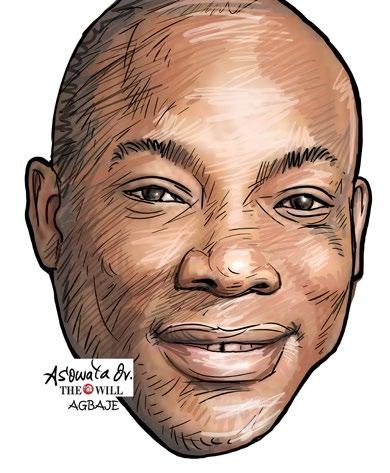
EDITOR Sam Diala
United Capital Harps on Bridging Nigeria’s

Indigenous companies are expected to strengthen their presence in upstream operations amid improved regulatory environment as the NUPRC planned a fresh oil bid round in 2025 to attract investors









BY VICTOR LIMAN
Trade statistics serve as the backbone of economic planning, investment decisions and policy formulation. For Nigeria, Africa’s largest economy and a key player in global trade, accurate and transparent trade data is essential for effective economic management.
However, persistent challenges in data collection, reporting inconsistencies and lack of transparency undermine the credibility of Nigeria’s trade figures, leading to misguided policies, revenue losses and weakened investor confidence. In an era where economic decisions are increasingly driven by data analytics and digital intelligence, Nigeria must prioritise the integrity of its trade statistics to ensure proper monitoring, tracking, and management of trade volumes.
A robust trade data system will not only strengthen Nigeria’s global trade position but also enhance domestic revenue mobilisation, economic forecasting, and industrial planning.
The Current State of Nigeria’s Trade Statistics –Nigeria’s trade data is primarily managed by: The National Bureau of Statistics (NBS), responsible for compiling national trade statistics. The Nigerian Customs Service (NCS) tracks import and export flows at ports and border points. The Central Bank of Nigeria (CBN) monitors trade-related foreign exchange transactions. The Federal Ministry of Industry, Trade, and Investment (FMITI) –oversees trade policies and agreements. Despite the presence of these institutions, Nigeria faces significant challenges in trade data accuracy and transparency, leading to discrepancies in reported figures and distortions in economic planning.
Key challenges affecting Nigeria’s trade statistics
Inconsistent and volumes Contradictory Trade Reports
– There are frequent mismatches between NBS, CBN, and Customs trade reports, raising concerns about data credibility.
– Nigeria’s reported trade often differ from partner countries’ records, indicating possible underreporting or misclassification of trade flows.
Widespread Informal Cross-Border Trade (ICBT)
– Nigeria has a vast informal economy, with unregistered trade activities occurring at land borders with Benin, Niger, and Cameroon.
– The lack of proper documentation and monitoring of informal trade results in huge gaps in official trade statistics.
– Smuggling and unrecorded transactions distort Nigeria’s actual export and import volumes, leading to revenue leakages.
Customs Underreporting and Fraudulent Documentation
– Importers and exporters sometimes under-declare cargo values to evade duties, leading to fiscal revenue losses.
– The use of fake documentation and misclassification of goods results in incorrect trade volume figures.
Lack of Digital Integration Among Trade Agencies.
– Nigeria’s trade data systems are fragmented, with NBS, NCS, CBN, and FMITI operating in silos without real-time data sharing.
– The absence of a centralised digital trade database prevents accurate tracking of trade flows and weakens regulatory oversight.
Challenges in Measuring Services Trade
– While Nigeria’s goods trade data is monitored (albeit with gaps), trade in services (ICT, financial services, logistics, and consulting) remains poorly documented.
– Inadequate tracking of Nigeria’s booming digital economy and remittance flows leads to an incomplete picture of trade performance.
Without urgent reforms, Nigeria risks continuing revenue losses, weak economic planning, and reduced global trade competitiveness.

Why accurate and transparent trade statistics matter
Strengthening economic planning and policy formulation
Reliable trade data is critical for designing effective industrial, trade, and fiscal policies.
– Governments and businesses need accurate import and export figures to plan infrastructure, manufacturing, and investment strategies.
Enhancing revenue collection and fiscal management
Smuggling and customs underreporting cause Nigeria to lose billions of dollars annually in uncollected tariffs and duties.
– Strengthening trade statistics will boost tax compliance, increase customs revenue, and reduce fiscal deficits.
Improving Nigeria’s Global Trade Position – Nigeria’s inaccurate trade reporting affects its credibility in international trade negotiations.
– Proper trade data tracking will help Nigeria leverage the African Continental Free Trade Area (AfCFTA) and boost regional trade integration.
Attracting Foreign Direct Investment (FDI)
– Investors rely on credible trade statistics to assess market opportunities.
– A transparent trade data system will enhance Nigeria’s reputation, attracting more FDI into manufacturing, agriculture, and logistics.
Ensuring Supply Chain Security and Consumer Protection
– Proper tracking of imports helps prevent the entry of substandard and unsafe goods into the domestic market.
– Accurate trade data ensures better monitoring of food safety, pharmaceuticals, and industrial goods to protect Nigerian consumers.
Recommendations for Strengthening Nigeria’s Trade Data Accuracy and Transparency:
To address these challenges, Nigeria must implement structural reforms and adopt advanced data management technologies to ensure credible trade statistics.

Inadequate tracking of Nigeria’s booming digital economy and remittance flows leads to an incomplete picture of trade performance
Establish a centralised digital trade data platform.
Integrate NBS, NCS, CBN, and FMITI databases into a unified system for real-time trade data tracking.
– Introduce blockchain technology for tamper-proof trade documentation and reporting.
Strengthen Customs Monitoring and Trade Compliance
– Deploy AI-driven automated scanning and tracking systems at ports and land borders to reduce underreporting.
– Implement mandatory e-invoicing and digital trade documentation to eliminate fraudulent trade declarations.
Enhance Informal Cross-Border Trade (ICBT) Documentation
– Develop formal trade corridors with simplified registration processes for small-scale traders.

– Utilise mobile trade registration apps to capture unrecorded trade activities.
Improve Measurement of Services Trade and Digital Transactions
– Establish a National Services Trade Observatory to track ICT, fintech, and professional services exports.
– Work with banks, fintech companies, and telecom providers to document digital trade flows.
Boost Capacity Building for Trade Agencies and Statistical Units
– Train customs officials, statisticians, and trade analysts on advanced trade data collection methodologies.
– Strengthen collaboration with international organisations (WTO, IMF, UNCTAD) for technical support and data verification.
Increase Public and Stakeholder Access to Trade Data
– Publish quarterly and annual trade reports with detailed sectoral insights to improve transparency.
– Engage business communities, researchers, and policymakers in trade data discussions to enhance accountability.
In today’s globalised economy, data is as valuable as oil. Nigeria cannot afford to operate in an environment where trade statistics are inconsistent, incomplete, or manipulated. The stakes are high— economic planning, revenue generation, investment decisions, and trade policy formulation all depend on reliable trade data.
To strengthen Nigeria’s economic position, attract investment, and fully benefit from AfCFTA, the government must:
-Enforce transparency in trade reporting.
Leverage technology for real-time trade tracking.
-Eliminate revenue leakages from customs fraud and smuggling.
-Provide accurate trade data to investors and global markets.
Nigeria’s economic future hinges on its ability to manage trade data with precision and accountability.
•Liman is a trade policy advisor and institutional reform strategist.

Unlike most blue-chip companies that started in highbrow business districts capitalised from deep pockets, Afrinvest (West Africa) had a humble start – a story passionately narrated by the Group Managing Director, Ike Chioke, whose vision resulted in creating a leading investment house that has elevated the country’s financial services industry to global spotlight. During a chat in Lagos recently, the investment banker traced the history of the company to his garage as soon as he returned to Nigeria in 2003.
Afrinvest and the London, continental links
You will recall that Afrinvest London had trading relationships across 10 sub-Saharan African countries outside of South Africa. It had a broker dealer in each of Côte d’Ivoire, Senegal, Ghana, Kenya, etc, and, of course, Nigeria, its biggest market, where the broker dealer was Securities Transaction & Trust Company Limited (Sectrust), founded by Godwin Obaseki, who later became governor of Edo State.
I worked in Afrinvest London for a while and ultimately decided to set up the franchise in Nigeria. Afrinvest Nigeria became Afrinvest Securities, a subsidiary of Sectrust in 2006, and Sectrust changed its name to Afrinvest West Africa that same year.
How the idea of Afrinvest started I studied in the United Kingdom and left in 1991 for the United States, upon completion of my studies, to work with Goldman Sachs one of the top investment banks in Wall Street. Several years later, I returned to the UK to work for another investment bank and afterwards, returned to Nigeria.


Afrinvest. The original founder of Afrinvest is a friend of mine, Philip Iheanacho.
the highlights:
Today, we have become one of the top investment banking franchises, with many operating businesses, and nearly 200 professional staff across five offices
that process, I got involved in the transaction and got much more exposed to Nigeria’s investment banking opportunity, and then used the chances that came to move ourselves back to Abuja in 2003.
Editorial Note
Afrinvest has built the reputation of publishing its annual Banking Reports which highlights the key areas of impact in the Nigerian economy. In its 2025 report, entitled ‘Beyond Rhetoric’, the firm focused on the recapitalisation of Deposit Money Banks and the path to Nigeria’s $1 trillion economy goal. The report discusses the impact of global economic risks and domestic policy reforms on the banking sector and highlights the importance of recapitalization to support economic growth.
Around 1995, I began to realise that, ultimately, I needed to go back to Nigeria. I had the opportunity of being in America, as I had a green card. But when I extrapolated my future and the lifestyle of the vice-president or managing director I aspired to become, I thought to myself, well, it’s interesting, but money doesn’t really motivate me that much, though I work in an investment banker. That’s somewhat a paradox.
But I said I wanted to learn investment banking, and I think I needed to step out of Goldman Sachs and learn how to advise smaller companies. That was when I decided to look at Smith Barney, because it had a respected technology banking franchise on the west coast of America, in San Francisco.
This dream pushed me to move to San Francisco in the mid90s to deal with startups, such as AOL but ultimately ended up in London in 1998 following a series of mergers that created Salomon Smith Barney the previous year.
Placing the origin of Afrinvest
I wish to clarify that I am not the original founder of
Philip and I had met in 1993 or 1994 in New York when he was working for McKinsey. He then left McKinsey years later and set up Afrinvest. I joined him in London in 2002 bringing to the firm my investment banking expertise. Afrinvest, was an equities trading business, buying and selling listed shares between emerging market investors in London that wanted to trade in Africa.
The garage dimension of Afrinvest’s coming In 2004, I established Afrinvest Nigeria; guess what, in the garage of my house in Maitama, Abuja. That’s how we started, very humbly. Today, we have become one of the top investment banking franchises, with many operating businesses, and nearly 200 professional staff across five offices
On the soft side
I met my wife, Yvonne, a Dutch national before I returned. I met her on a deal in Kenya while working for Salomon Smith Barney, and it was she who then found a transaction that brought me to Nigeria. She was mandated by a Nigerian group called Investors International London Limited, headed by Chief Bode Akindele, of blessed memory. Akindele was a very wealthy Nigerian, and he wanted to take over NITEL. In
Here’s are the main highlights:
-Recapitalization:
The report emphasizes the critical role of banking sector recapitalization in achieving Nigeria’s ambition of a $1 trillion economy by 2030.
-Economic Growth:
Afrinvest anticipates a modest recovery in 2025, with the banking sector expected to remain firm despite capitalraising activities.
Agriculture, oil & gas, consumer goods, industrial goods, banking, and telecommunications are identified as key sectors poised to boost the Nigerian economy.
-Global and Domestic Factors:
The report analyses the impact of global economic risks and domestic policy reforms on the banking sector and Nigerians in general.
-Reform Implementation:
A key message is the need for the government to translate reform rhetoric into tangible outcomes, as further delays could be detrimental.
-Specific Concerns:
The report also touches on issues like Nigeria’s debt servicing costs, which have exceeded the pro-rata budget, and the need to address challenges like insecurity and flooding.
Photo Editor: Peace Udugba [08033050729]

L-R: Ifeoma Williams, SA to the Minister of State for Industry, Trade and Investment; Minister of State for Petroleum Resources, Oil, Senator Heineken Lokpobiri; Managing Director & Chief Executive Officer, EnergyInc Advisors, Rolake Akinkugbe-Filani; Group CEO of NNPC Limited, Engr. Bayo Bashir Ojulari; Minister of State for Petroleum Resources, Gas, Chief Ekperikpe Ekpo; Chairman IPPG & Group Chairman, Waltersmith, Abdulrazaq Isa at the NOG Energy Week 2025 in Abuja at the weekend.

L–R: Minister of Communications, Innovation and Digital Economy, Dr. Bosun Tijani; Deputy Governor of Kano State, Comrade Aminu Abdussalam Gwarzo; Minister of State for Youth Development, Ayodele Olawande and Chief Operating Officer of IHS Nigeria, Kazeem Oladepo, at the commissioning of the restored Kano Digital Industrial Park, refurbished in collaboration with IHS Nigeria on July 2, 2025.
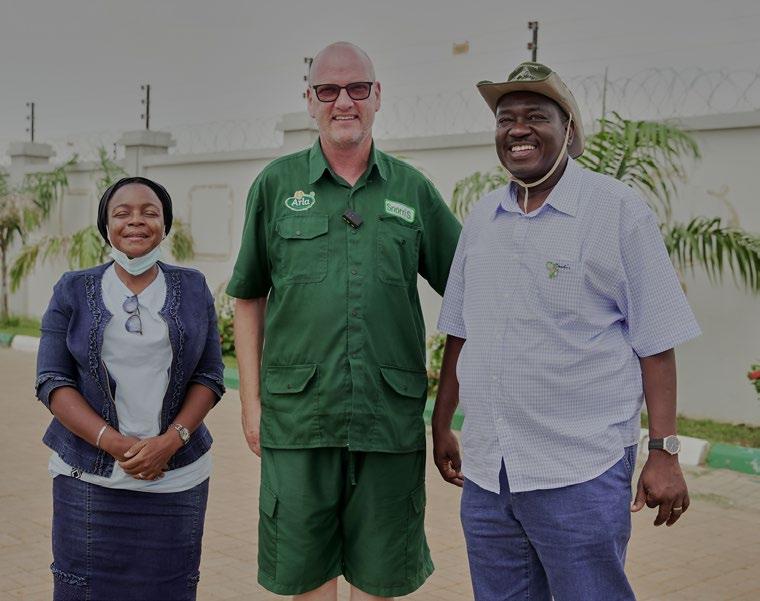
L-R: Agropreneur, Mrs. Davina Kalla; Head of Raw Milk Operations, Arla Foods Nigeria, Mr. Snorri Sigurdsson and Director, TETFund Centre of Excellence on Food Security, Dairy Research and Development Centre Abubakar Tafawa Balewa University, Bauchi, Prof. Demo Kalla at Arla Farm during a visit at Damau, North-East Kaduna, recently.

cross section of the Four Nurse Educators, during their deployment to Jamaica at the TAC office in Abuja on

of

A cross-section of widows of fallen heroes with their palliatives, during the commemoration of 2025 Nigeria Army Day Celebration in Kaduna on July 4, 2025.






BY JUDE OBAFEMI
Nigerian international, Maduka Okoye, who guards the goal post for Serie A side Udinese, is facing serious football and legal consequences amid allegations of betting fraud.
Italian prosecutors in Udinese are investigating the 25-year-old following an incident that took place on March 11, 2024, during Udinese’s 2-1 victory over Lazio. Okoye was booked for time-wasting in the 64th minute. Shortly afterwards, the betting firm Sisal flagged an unusually high number of bets on that specific outcome. The incident prompted a deeper inquiry into whether the yellow card was deliberately obtained for financial gain.



Local prosecutors have since escalated the matter. What began as suspicions of irregular betting has grown into an allegation of sporting fraud. Investigators believe Okoye may have colluded with associates to engineer the booking and subsequently profit from bets placed on it. That development could expose him to far more severe penalties than those for mere betting breaches. Under Italian law and football regulations, sporting fraud is treated as a criminal offence, carrying potentially harsh repercussions.
The prosecutor’s office in Udinese is examining the involvement of several individuals thought to have encouraged or facilitated the placing of bets. Among them is a local entrepreneur, Diego Giordano, owner of a pizzeria known to be frequented by Udinese players and Mario Bordon. Records show that their phones were seized for forensic analysis. Investigators suspect verbal agreements may have been made at Giordano’s restaurant before betting activity at a Sisal outlet in the city.
Betting patterns in Udine reportedly yielded winnings of around N120 000, and those sums were traced to betting slips connected to that specific yellow card event. Prosecutors believe that an arrangement was reached ahead of the Lazio match, including coordination with multiple bettors, but they have not yet filed formal charges against Okoye .
Italian football authorities have referred the case to Udinese’s disciplinary commission. Maximum suspension for sporting fraud

under the Federazione’s rules may reach up to four years. Prosecutors have described the accusation as moving from illegal betting to sporting fraud, which marks a significant shift. The distinction is crucial, as a fraud conviction could bring a prison sentence and career-ending sanctions.
Okoye’s legal team, led by lawyer Maurizio Conti, has rejected the allegations. They insist there is no concrete proof linking him to any wrongdoing and criticised the investigation as lacking solid evidence . Okoye remains absent from the pitch, recovering from wrist surgery, a development that coincided with the inquiry and led Udinese to sign Norway’s Egil Selvik as temporary cover.
This story has garnered significant attention within Nigeria. The goalkeeper had been gaining acclaim as a dependable last line of defence for both Udinese and the Super Eagles. He earned his place in the national team after a strong club career in the Netherlands and a move to Watford before joining Udinese in August 2023 . He has made 16 international appearances since 2019. The fallout from this case now places in doubt his future with both club and country.
The timing of the public revelations has proved unfortunate. Okoye had been selected as Nigeria’s reserve goalkeeper for a recent friendly against Russia in June 2025, in which he featured. Should formal charges be brought and upheld by football or criminal courts, he may be unable to participate in upcoming matches, including AFCON qualifiers and potential World Cup fixtures should Nigeria make the cut. Udinese’s coach Kosta Runjaic said in January 2025 that the squad’s
at
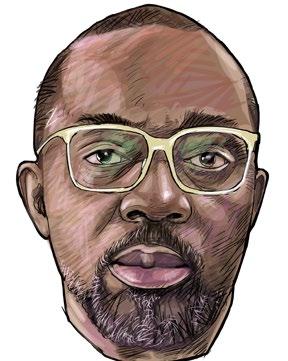

ogannah@thewillnews.com
Peter Rufai once stood in goal with the air of a man born to defend his country. He was calm in chaos, poised under pressure, and committed to his role in Nigeria’s rise in world football. Born on 24 August 1963 in Lagos, he rose from local clubs to become the backbone of the Super Eagles between 1991 and 1998. He earned 65 caps, led Nigeria to its first Africa Cup of Nations title in 1994 and represented the nation at the World Cup in 1994 and 1998. He played for top clubs in Belgium, the Netherlands, Portugal and Spain, appearing for Deportivo La Coruña and Hércules, while also turning down a royal title in 1999 to remain true to the sport he loved.
He earned the affectionate title ‘Dodo Mayana’, highlighting both affection and admiration. He became the first Nigerian goalkeeper to score internationally, converting a penalty against Ethiopia in 1993. After his playing career ended in 2000, he founded the Staruf Football Academy in Nigeria and Spain to support young talent, a feel of a quiet desire to give back to society. His humility earned praise from across the nation when he passed away on July 3 in Lagos at age 61 after a brief illness. Tributes flowed from across the spectrum: the Nigeria Football Federation described him as “a giant of Nigerian football” and fans of the goalkeeper have wished the iconic player tranquil eternity. All this praise was in life’s final moments. The pain came from what came before death. The NFF said it did not know that he had been ill until he died. Fellow footballers have asked why his struggle had gone unnoticed, questioning how a servant of the nation could fall through the cracks. Their frustration made one fact clear: a hero whose voice once commanded arenas could suffer in silence, with no system offering help.
This is not unique to Rufai. Rashidi Yekini, the man who scored Nigeria’s first-ever World Cup goal in 1994 and remains the country’s top scorer, died in Ibadan on May 4, 2012 at 48 years. His body of work included becoming African Footballer of the Year in 1993 and setting goal records in Africa and Europe. The later years of his life were marred by mental illness, struggles with finances and the failure of state structures to provide care. His family and local community bore the cost of illness and uncertainty. It bears asking again why a man who gave so much to the nation

had become disposable in his final days.
Christian Chukwu, who captained Nigeria to its first Africa Cup of Nations title in 1980, also suffered medical setbacks in old age that required serious financial support for treatment abroad. A public fundraising effort and a contribution from philanthropist Femi Otedola raised enough to aid his care. While he later received help, it came after years of uncertainty and public outcry. He died on 12 April 2025 at 74 years of age under-appreciated by his own nation.
John Obi Mikel, a World Cup and Champions League winner, further illustrates the pattern. In 2016 he privately footed the hotel bill for the national Olympic squad, a gesture that relied on personal means rather than institutional structures. He was never reimbursed. Such gestures, noble as they were, highlight the persistent absence of formal systems to support heroes once the spotlight dims.
If swords of neglect cut deep, then swords of entitlement
cut deeper. Politicians who serve brief terms receive pensions, cars, housing and life-long medical coverage. These individuals use the instrumentality of policy to award themselves fat retirement benefits, leaving true heroes to suffer and die. Retired governors, deputy governors, chief executive officers and executive directors, senators and ministers as well as others enjoy benefits not available to the men and women who brought the nation global esteem. That imbalance should provoke outrage. Nigeria has chosen to honour thieving bureaucrats over national service with trophies, medals and opportunity for the future.
The gulf between the two paths is striking. The sportsman gives years in jerseys, trophies and acclaim, then finds himself outside the system when injury, illness or age steals his livelihood. The politician merely holds office, sometimes for just four years and steals, then enjoys predictable comfort funded by the state.
That must change. Public office retirement should be reformed. The nation should cap undeserved pensions. It should dismantle the current system that pays generous benefits despite scandal, exile or incompetence. The state cannot honour those who hold power and ignore those who actually hold the flag.
On the other hand, Peter Rufai’s death deserves more than social media sentiment. Rashidi Yekini deserved more than empty prayers. Christian Chukwu deserved care, not charity. Mikel Obi deserved reimbursement. This is not a request for pity. It is a matter of justice.
If governing a state requires billions, surely investing in heroes requires millions. If foreign officials receive welfare and evoke headlines, Nigerian athletes deserve far more. Our values are reflected in how we care for those who defend our identity.
It remains to be seen whether Rufai’s passing will lead to lasting change or be absorbed into the cycle of grief and forgetfulness. The lives of our heroes are not expendable. They reflect our collective conscience and hope. It is time to walk the talk, not just hang wreaths. It is time to honour not just in memory, but in sustenance. It is time to treat our icons as lasting treasures, not temporary lights. The price of failure is not sorrow, but a nation that forgets its best.
Politicians who serve brief terms receive pensions, cars, housing and lifelong medical coverage. These individuals use the instrumentality of policy to award themselves fat retirement benefits, leaving true heroes to suffer and die